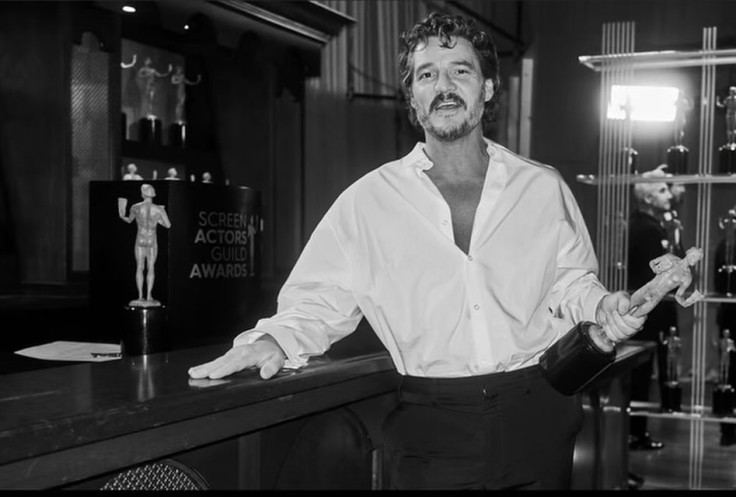Pedro Pascal Officially Crowned Hottest DILF Alive — Internet Erupts In Thirst
Pascal beats actors Mads Mikkelsen and Jensen Ackles for the title

Pedro Pascal has been officially named the DILF of 2025 after a fan-driven poll and the internet promptly lost its composure.
Archive Dilfs, a fan account and collective that runs an annual public vote for the 'Top DILFs of the Year', announced on 01 November 2025 that Pascal topped their 2025 list, beating actors such as Mads Mikkelsen and Jensen Ackles in a competition the organisers say drew more than 25,000 submissions.

Archive Dilfs Announces Winner
The result was posted on Archive Dilfs' social channels, where the group published a sequence of numbered posts listing their Top 20 and crowning Pascal at number one. The post, shared on Instagram and X (formerly Twitter), included the final ranking and a note on the voting rules, which allowed entries for any celebrity aged over 40 or who has children, with a handful of exceptions.
Pascal's ascent to the top of such lists is hardly accidental. Over the past two years, he has moved from character actor to global star through leading roles in high-profile productions, and profile pieces in established outlets have tracked how that fame translated into intense public affection.
Vanity Fair's June 2025 feature charted Pascal's rise and noted his status as a mid-career sex symbol, a persona cultivated as much by his roles as by his warmth in interviews and on social media.
Pascal's Public Persona and Fan Appeal
Pascal's rapport with fans is reflected in his public remarks. In televised and online interviews, Pascal has acknowledged how fan engagement shapes his awareness of his audience and sometimes his choices, suggesting a reciprocal relationship between celebrity work and popularity.
Reuters' coverage of Pascal discussing fan love captures this dynamic, showing an actor who is conscious of, and often amused by, his celebrity cachet.
For many fans, Pascal's appeal lies in a blend of screen gravitas and off-screen accessibility. He plays complex, morally textured characters but answers questions with self-deprecating humour and an avuncular energy that fuels affectionate internet communities.
The Archive Dilfs result, his supporters say, is an extension of that affection, fan culture turned into a tally.
Debate Over Definitions and Fan Polls
Despite the celebratory posts and memes, the poll has prompted debate about what such lists actually measure. Critics argued that the label 'DILF', and the loosened eligibility criteria Archive Dilfs employed blur the line between a tongue-in-cheek fan activity and broader cultural categories.
Some commentators questioned the inclusion rules that permitted non-parents over 40, and singled out an apparent exception for one nominee, sparking discussion about transparency and the meaning of desirability metrics.
Online reaction was predictably mixed. Supporters flooded social feeds with congratulations and jokes; others interrogated the concept itself, asking whether these polls reinforce narrow standards of attractiveness or simply reflect the playful side of fandom.
Reddit and fan-account threads tracked the real-time response, where threads ranged from earnest celebration to sceptical commentary on the methodology and the cultural implications of ranking humanity.
A social-media poll victory is not an industry award, but it is a useful gauge of audience engagement in 2025's celebrity ecosystem. Archive Dilfs' campaign shows how decentralised fan movements can propel an actor into trending topics and strengthen their cultural brand. For casting executives and publicists, that sort of quantifiable enthusiasm can be influential even if it is not a credential in the traditional sense.
Pedro Pascal's coronation as the internet's 'hottest DILF' is, ultimately, less a definitive judgement and more a momentary cultural snapshot: a fandom-led measurement of affection, fandom energy and the messy, often comic business of celebrity in the social-media age.
© Copyright IBTimes 2025. All rights reserved.





















